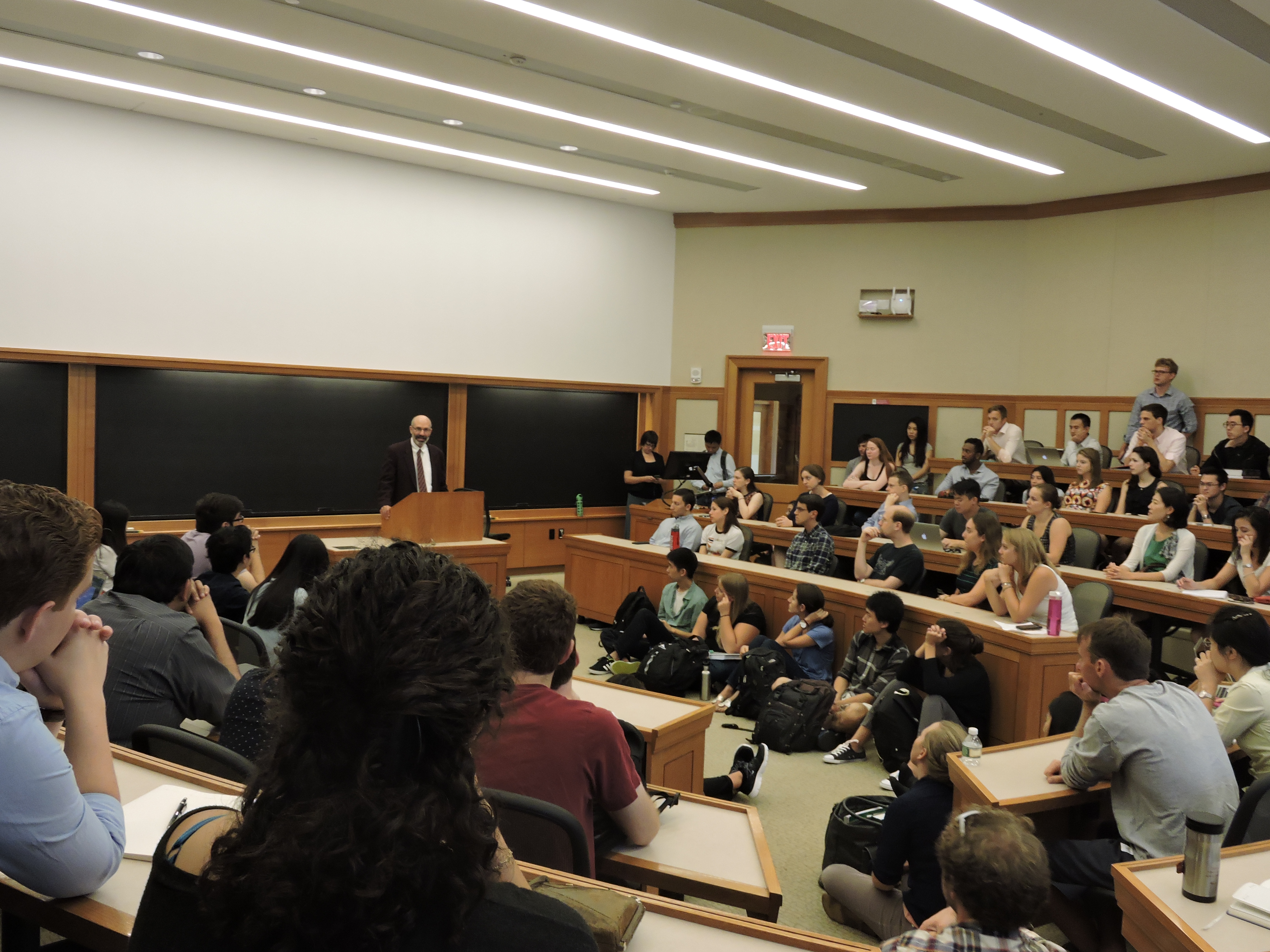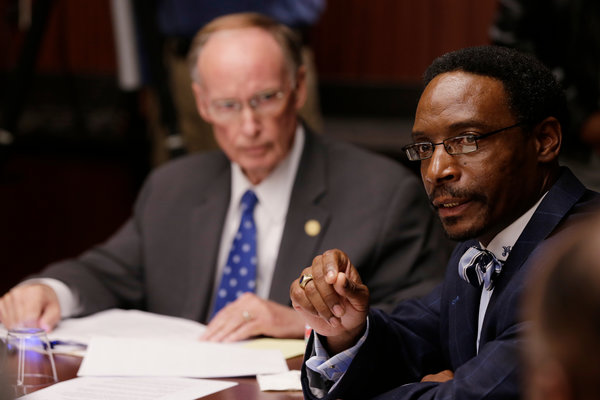On September 4th, just before students began working in Harvard Law School’s clinics and student practice organization, the Prison Legal Assistance Project and the Office of Clinical and Pro Bono Programs hosted a lunch talk entitled Public Service Litigation and Solitary Confinement by Jules Lobel, Professor of Law at the University of Pittsburg School of Law and President of the Center for Constitutional Rights (CCR).
Professor Lobel began his talk by giving a brief history of Ashker v. Governor of California, a federal class action lawsuit filed in May 2012, challenging the practice of solitary confinement based on the Eighth Amendment’s prohibition against cruel and unusual punishment at California’s Pelican Bay State Prison. The lawsuit was brought on behalf of prisoners held in solitary confinement at the prison’s Security Housing Unit for over a decade. The case was part of CCR’s efforts to challenge mass incarceration and abusive prison policies.
Harvard Law School students who attended the talk were particularly curious about the conditions prisoners are subjected to.
Lobel explained that the Pelican Bay State Prison has one of the largest solitary confinement units of its kind. Prisoners are locked 23 hours a day in an 8-by-10 feet cell, without access to sunlight. The only way they can talk to other inmates is through a hole in the ground in the recreation area they can use for only one hour per day. Research has shown that, as a result, social deprivation and deteriorating health conditions characterize this particulate inmate population.
On September 1st, a landmark settlement was reached to end indeterminate, long-term solitary confinement in all California state prisons. The victory will not only reduce the number of people in solitary confinement but also improve the situation for those who are in solitary confinement.
“Do not think something is impossible in litigation,” Lobel said. “You never know.”

